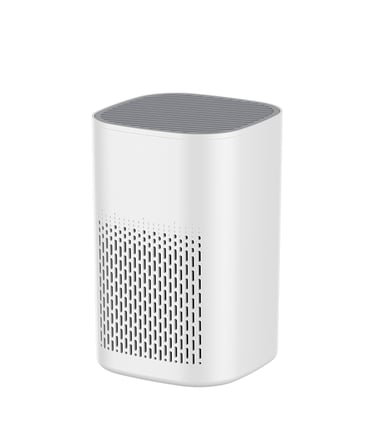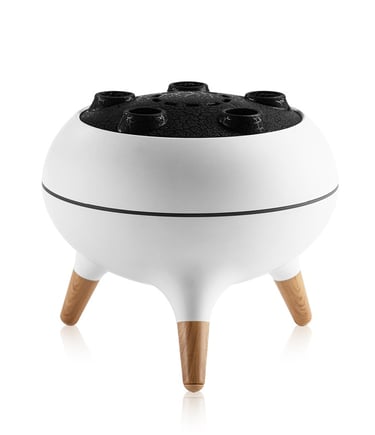Air Purifier vs. Humidifier: What’s the Difference, and Do You Need Both?
When it comes to improving the air in your home, two devices are often recommended: air purifiers and humidifiers. While they both help create a healthier living space, they serve very different purposes.
8/1/20251 min read


If you’ve ever wondered whether you need one or both, this guide will clear things up.
Device
Function
Best For
Air Purifier
Removes airborne particles (dust, smoke, allergens) using HEPA or carbon filters
People with allergies, asthma, or in polluted areas
Humidifier
Adds moisture to dry air to balance humidity levels
Dry skin, sore throat, or homes with low humidity
1. Air Purifiers: Clean the Air You Breathe
Air purifiers use filters (like HEPA or activated carbon) to remove:
• Dust, pollen, pet dander
• Smoke and cooking odors
• Volatile organic compounds (VOCs) from cleaning products or furniture
They’re essential in homes with pets, smokers, or people who suffer from respiratory issues or allergies.
2. Humidifiers: Add Moisture for Comfort
Humidifiers do not clean the air — instead, they add water vapor to maintain a comfortable humidity level (typically 40–60%).
Dry indoor air can cause:
• Dry skin, itchy eyes
• Sore throats
• Cracked lips and nosebleeds
This is especially common during winter or in air-conditioned environments.
3. Do You Need Both?
In many cases, yes.
Here’s why:
• In winter, air is dry and full of indoor pollutants. A purifier removes the irritants, and a humidifier adds moisture to prevent dryness.
• In cities, the air may be both polluted and dry, especially with heating systems running.
Using both devices can help you:
• Sleep better
• Protect your skin
• Breathe more comfortably
Tip: Use a hygrometer to monitor indoor humidity. If it’s under 40%, a humidifier can make a big difference.
Air purifiers and humidifiers aren’t competitors — they’re partners. While one removes invisible threats from the air, the other creates a more comfortable environment to live in.


